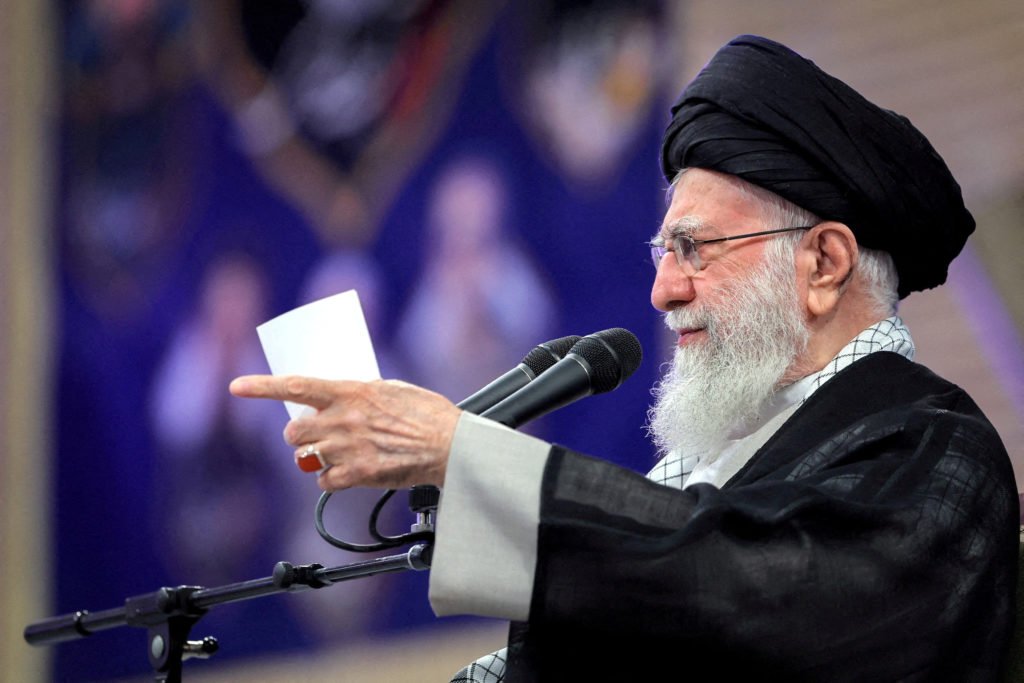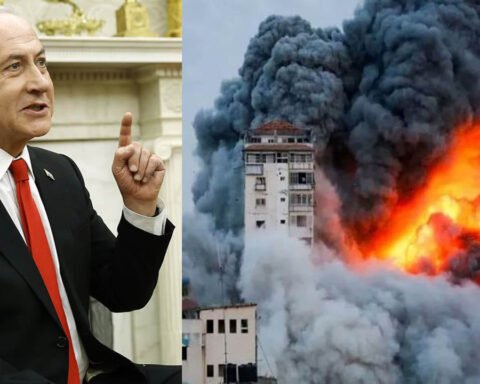Tensions in the Middle East reached a boiling point this week after Iran’s Supreme Leader, Ayatollah Ali Khamenei, warned that any military aggression by the United States would provoke “serious, irreparable consequences.”
The warning follows U.S. President Donald Trump‘s recent statement insisting that Tehran must surrender unconditionally—remarks that coincided with an intensifying aerial conflict between Israel and Iran.
In a televised address on Wednesday, Khamenei declared:
“Iran does not accept an imposed war or an imposed peace. We will respond firmly, and any American intervention will trigger an all-out war.”
The conflict flared up last Friday when Israeli fighter jets launched a wave of airstrikes on key Iranian installations, including the Natanz nuclear facility and Imam Hussein University, a research center with close ties to the Islamic Revolutionary Guard Corps (IRGC).
Israel claimed the attacks were aimed at halting what it views as Iran’s illegal pursuit of nuclear weapons, though Tehran maintains its nuclear program is for peaceful purposes.
The move marked the most serious military confrontation between the two rivals since the 2020 assassination of Qasem Soleimani, and comes in the shadow of Israel’s 2023 Gaza military campaign.
While President Trump has not formally announced plans for U.S. engagement in the conflict, he has authorized the repositioning of American warships and surveillance aircraft near the Strait of Hormuz—a narrow but vital passage through which nearly 20% of the world’s oil is transported.
This move has intensified speculation that Washington is preparing for limited or full-scale intervention, despite Trump’s ambiguous comments:
“I may do it. I may not. But if I do, it will be decisive.”
Military analysts say the presence of U.S. aircraft carriers in the Persian Gulf sends a clear message of deterrence—not only to Iran but to regional players like Hezbollah and Syria, both of which have close military ties to Tehran.
Also Read; Israel Eliminates Iran’s New Military Commander
Iran’s state media has reported over 600 deaths, many of them civilians, in the aftermath of the Israeli strikes. In retaliation, Iranian missiles struck targets in southern Israel, including a hospital in Be’er Sheva, killing at least 15 people and injuring dozens.
The conflict has sent global oil prices soaring, with Brent crude jumping to over $110 per barrel. Economists warn that any sustained disruption in the region could have serious consequences for global energy markets.
World leaders, including Vladimir Putin of Russia, are calling for immediate restraint. The European Union, led by Germany, France, and the UK, is pushing for renewed nuclear talks in Geneva this week in hopes of pulling both sides back from the brink.
Meanwhile, Congressional leaders in the U.S. are urging President Trump to seek formal approval before launching any new military campaign—echoing concerns raised during past interventions in Iraq and Afghanistan.
Khamenei concluded his address with a vow to defend Iran’s sovereignty:
“We seek neither war nor submission. But if war is imposed on us, our enemies will regret it.”







